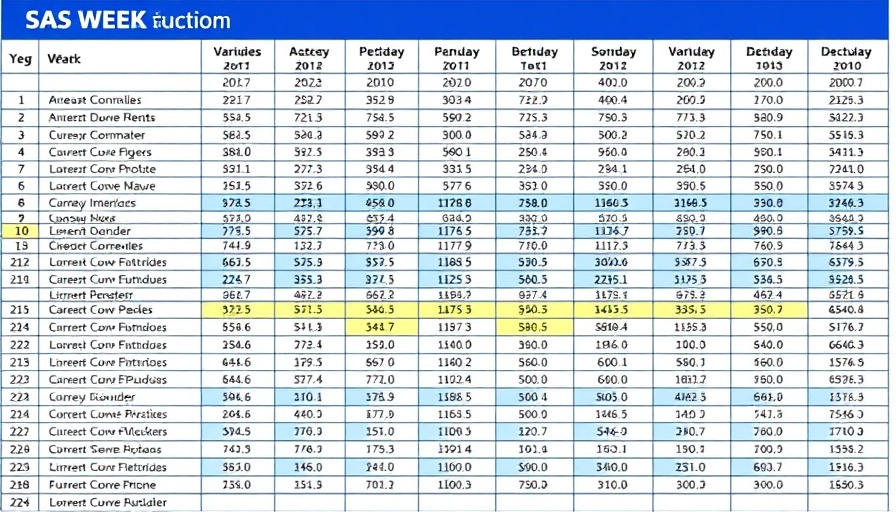
Revolutionizing Patient Care Through Advanced Analytics
Healthcare systems globally are under immense pressure to enhance service delivery while judiciously managing resources—doing more with less. In this landscape, advanced analytics emerge as a transformational force at the intersection of technology and patient care. By analyzing vast amounts of data, healthcare leaders can turn insights into actions, creating a proactive, efficiency-driven workflow that ultimately benefits patients.
Why Advanced Analytics Matter
Advanced analytics in healthcare play a crucial role in addressing key challenges such as patient routing and resource management. By harnessing real-time data, organizations can optimize emergency medical services (EMS) and streamline hospital operations to ensure timely and appropriate patient care. This is particularly salient in urgent scenarios, where every second counts and responses dictate outcomes.
Proactive Routing for Emergency Medical Services
The significance of effective routing in EMS cannot be overstated. Advanced analytics facilitate EMS teams in determining the safest and most efficient paths to their destinations. This routing technology utilizes data on current road conditions and patient severity, ensuring critical patients receive care swiftly and appropriately. By minimizing congestion and reducing wait times, healthcare providers enhance the patient experience while safeguarding outcomes.
Anticipating Demand Through Predictive Analytics
As healthcare demands vary, the ability to anticipate patient flow with accuracy is paramount. Advanced forecasting models utilize historical data to project surges in patient volume, be it seasonal demands or unexpected influxes. By having predictive insights at their fingertips, healthcare leaders can make informed staffing decisions and manage bed availability proactively, ultimately leading to better patient outcomes and lower operational stress.
Improving Patient Experience with Real-Time Updates
With the advancements brought about by analytics, the patient’s journey requires a focus on transparency and communication. For instance, in-home care programs can significantly benefit from real-time data applications that keep patients informed about their care timeline. Features such as estimated arrival times enhance patient satisfaction and trust in their care providers, showcasing how analytics carve a path for improved healthcare interactions.
The Future of Healthcare with AI and Analytics
Looking ahead, as AI continues to evolve, its integration with analytics will redefine healthcare capabilities. The rise of AI learning paths and the implementation of analytical tools will empower healthcare providers to make evidence-based decisions more efficiently than ever before. Organizations embracing this technology will not only enhance their operational efficiency but will ultimately foster better health outcomes for patients across diverse backgrounds.
Actionable Insights for Healthcare Organizations
Implementing advanced analytics necessitates strategic planning and investment in technology. Healthcare organizations should:
- Adopt AI learning systems to maintain a competitive edge and offer tailored patient care.
- Invest in robust data analytics infrastructure to ensure seamless integration across all health services.
- Develop training programs for staff to navigate and utilize analytics tools effectively.
With these steps, healthcare providers will be well-equipped to navigate the complexities of modern patient care.
A Call to Action
As the healthcare environment continues to evolve, staying ahead with advanced analytics is not just a recommendation but a necessity. Professionals in healthcare should explore how integrating AI and analytics can transform their services and improve patient interactions. The imperative is clear: Innovate now or risk being left behind in a rapidly advancing field.
 Add Row
Add Row  Add
Add 




Write A Comment